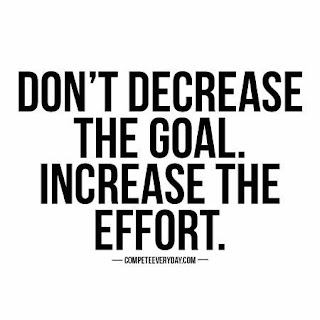I want to ask you a question. How many hours per day do you think?
“I never thought about that.” So let me get this straight. You’re thinking all the time, and yet, you never think about how much time you spend thinking.
That sounds like an addiction to me. I know, because I’m addicted to thinking too.
- When I eat too much, I can say “I’m overeating. I need to eat less.”
- When I work too much, I can say “I’m getting burned out. I need to stop working.”
- When I drink too much, I can say “I need to stop. I need a bottle of water.”
But when I think too much, I can’t just say “I’m overthinking.” I need a different approach to unclog my brain.
But the problem is that we don’t consider overthinking as a problem.
When someone says that overthinking is bad, we often assume that only negativethoughts are wrong. And by that definition, it automatically means that positive thoughts are good.
That’s the thinking error that I’ve made in the past. And I’ll tell you why it’s a mistake to assume positive thoughts are good.
But first, let’s talk about the difference between positive thoughts and negative thoughts.
Positive Thoughts vs. Negative Thoughts
I think most of us agree that negative thoughts are related to:
- Worrying
- Complaining
- Anger
- Feeling sorry for yourself
- Blaming others
Similarly, we can agree that the following thoughts are considered positive:
- Trying to solve problems
- Studying
- Understanding knowledge
- Planning
- Visualization
- Setting goals
What most self-help advice says is, scrap the negative thoughts and double down on the positive thoughts. When you think about it casually, it sounds like good advice.
After all, negative thoughts make our lives worse. And positive thoughts should make our lives better, right?
I wish that were the case. However, the truth is that when you overuse your brain, just like a drain, it can get clogged. The result? Foggy thinking. Which leads to bad decision making.
You Are Not Your Thoughts
Sure, you become whatever you think about. No one said it better than Marcus Aurelius in Meditations:
“Our life is what our thoughts make it.”
Our life situation is shaped by the quality of our thoughts. I believe in that. However, most of us assume that we are our thoughts.
We say: “Well, I can’t help but think these things. That’s just me.”
No, that’s NOT you. You can decide what thoughts to ignore in your mind. I like how Eckhart Tolle puts it in The Power Of Now:
“The beginning of freedom is the realization that you are not the possessing entity—the thinker.”
The only way to stop identifying yourself with your thoughts is to stop following through on all your thoughts.
Instead, decide to live in the present moment—where you don’t have time to think, only to experience.
How Do You Live In The Present Moment?
Thinking is a tool. And instead of using that tool during the 16 or 17 hours that you’re awake, only use it when you NEED it.
But how do you do that? Here’s the 4 step process I’ve used to stop overthinking.
- Raise your awareness throughout the day.
Always realize that too much thinking defeats the purpose. - When you raise awareness, immediately start observing your thoughts.
Every time you start thinking, don’t follow through, just observe how you startthinking. When you do that, you will automatically stop. - Only limit your thinking to specific moments that you need it.
For example, when you’re thinking about setting your daily priorities, sit down and think. That might take 5 minutes. During that time, it’s perfectly fine to think and follow through on your thoughts. Or, when you’re journaling, you’re also thinking during the process. That’s also fine. We’re trying to stop the constant thinking. We don’t want to become a monk. - Enjoy your life!
Let go of all your thoughts about yesterday and tomorrow. No matter how much you want to achieve in the future, and no matter how much you’ve suffered in the past—appreciate that you are alive: NOW.
Look, you don’t need me to tell you how awesome it is to be alive. By the way, I’m not going to sit here and tell you to “enjoy doing the dishes.”
That’s not my style. I just can’t fool myself like that. I enjoy the present moment in a different way.
I let go of every thought in my mind. While I’m doing something I don’t really like (doing the dishes), I don’t think at all. I just do it without judgment.
But when I’m doing something I actually like (no matter how small or big), I genuinely enjoy it. Listening to music, watching a movie, or spending time with my family, friends, or girlfriend—I’m in the moment.
I don’t think about my goals, failures, or things I have to do tomorrow.
I’m just here. Right now. At this very moment. Just like the moment that you’re taking to read these words. When it’s gone, it’s gone forever.
Realize that on a deeper level, and you’ll never even dare to leave the present.
Are you with me?












